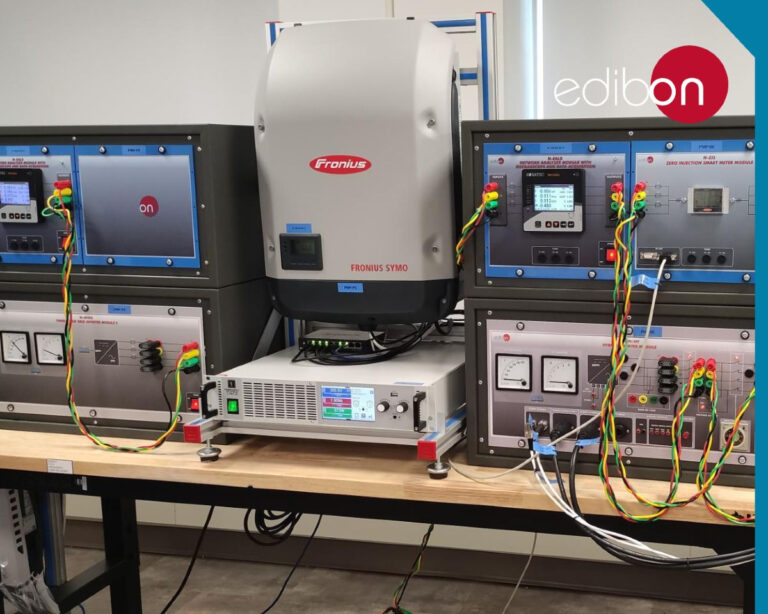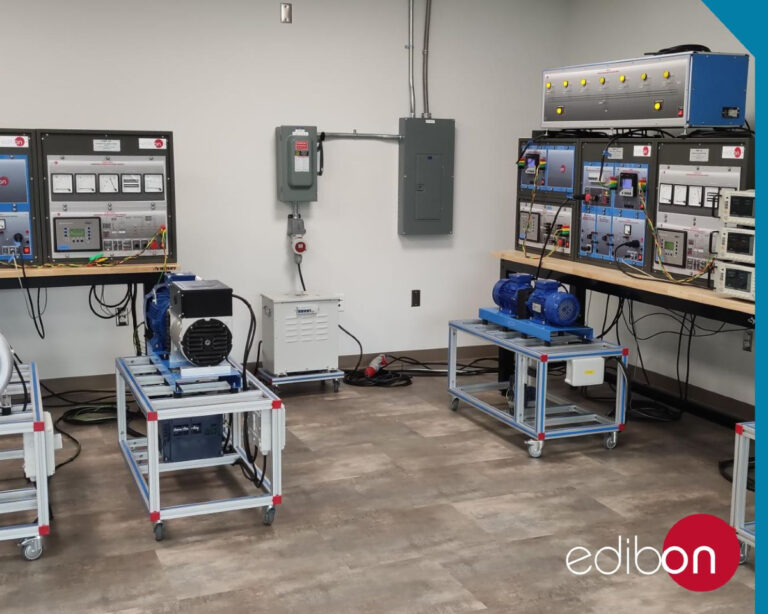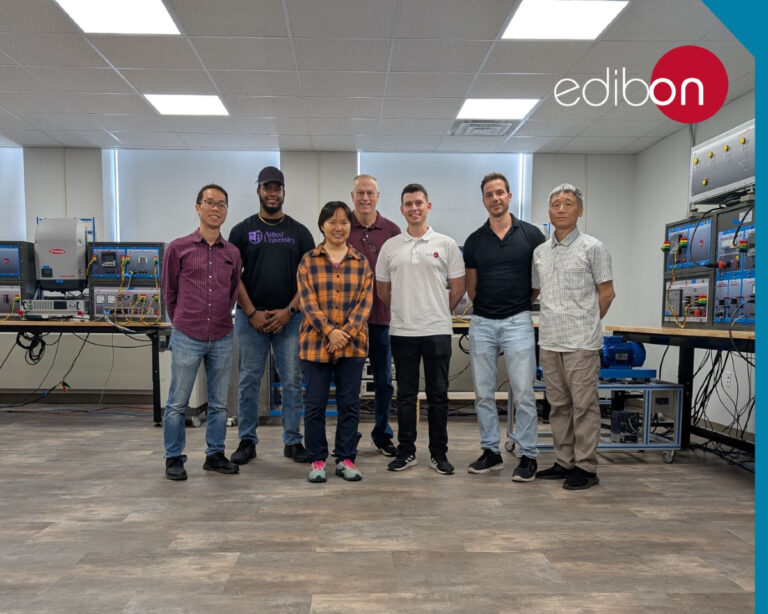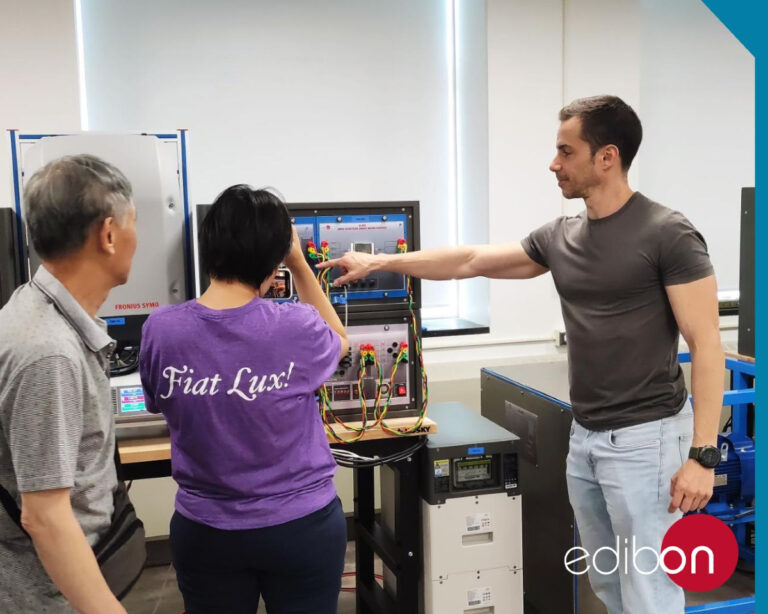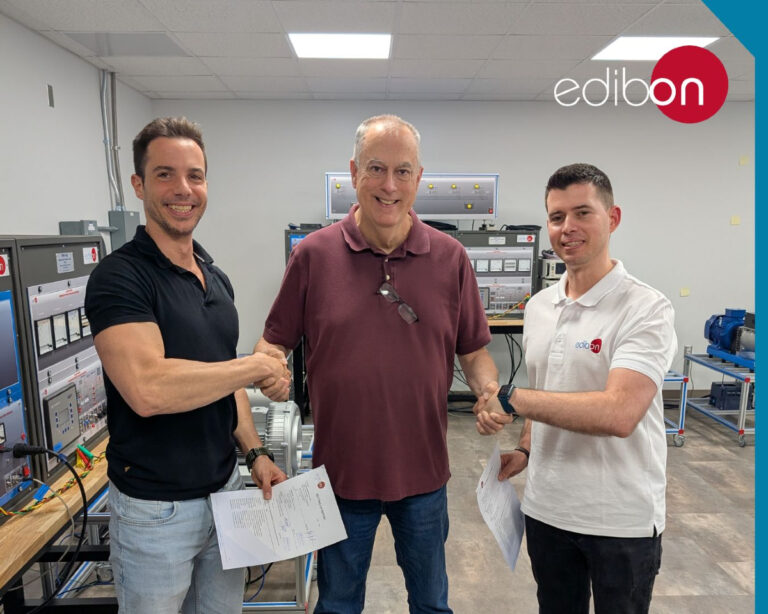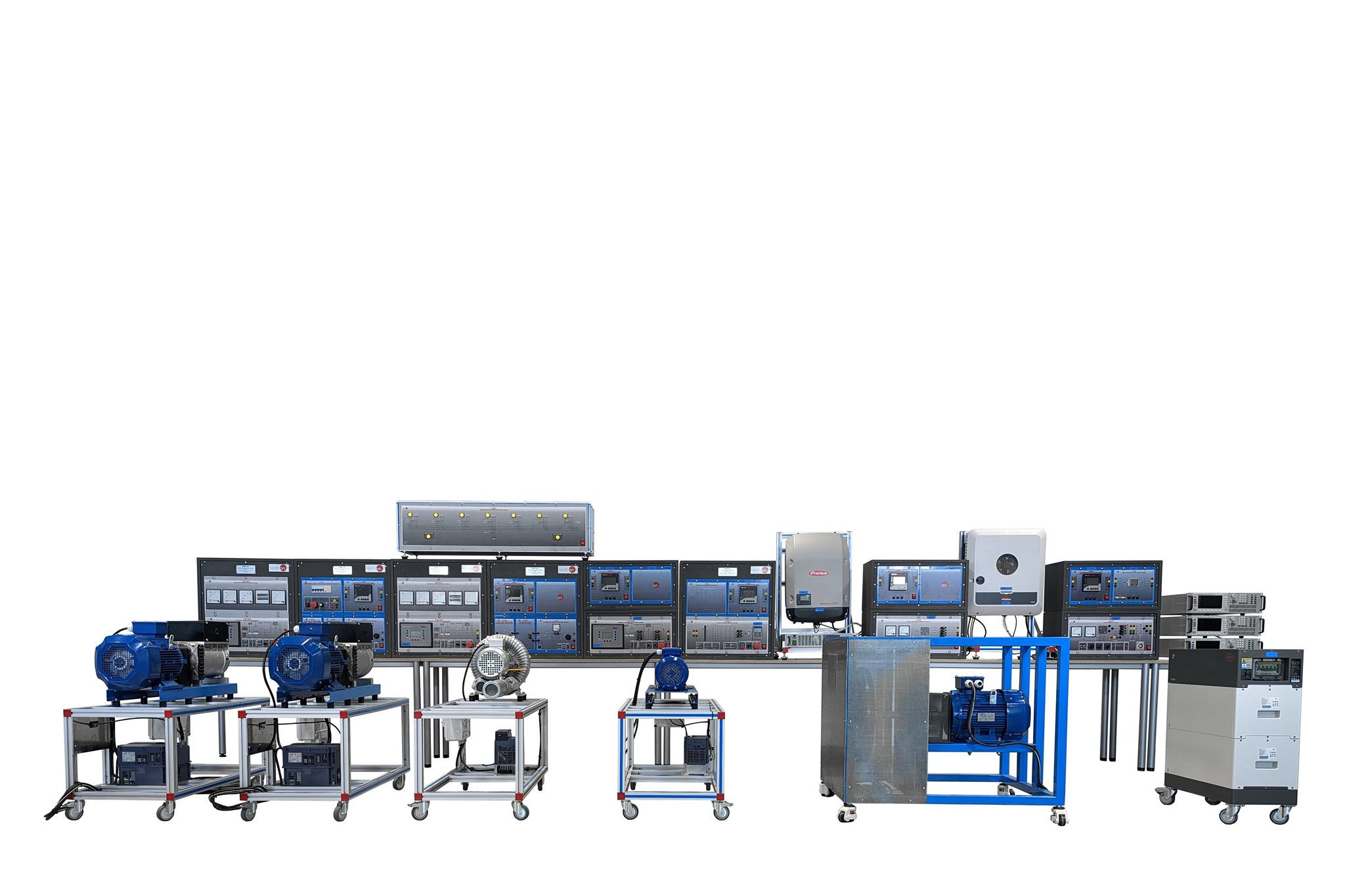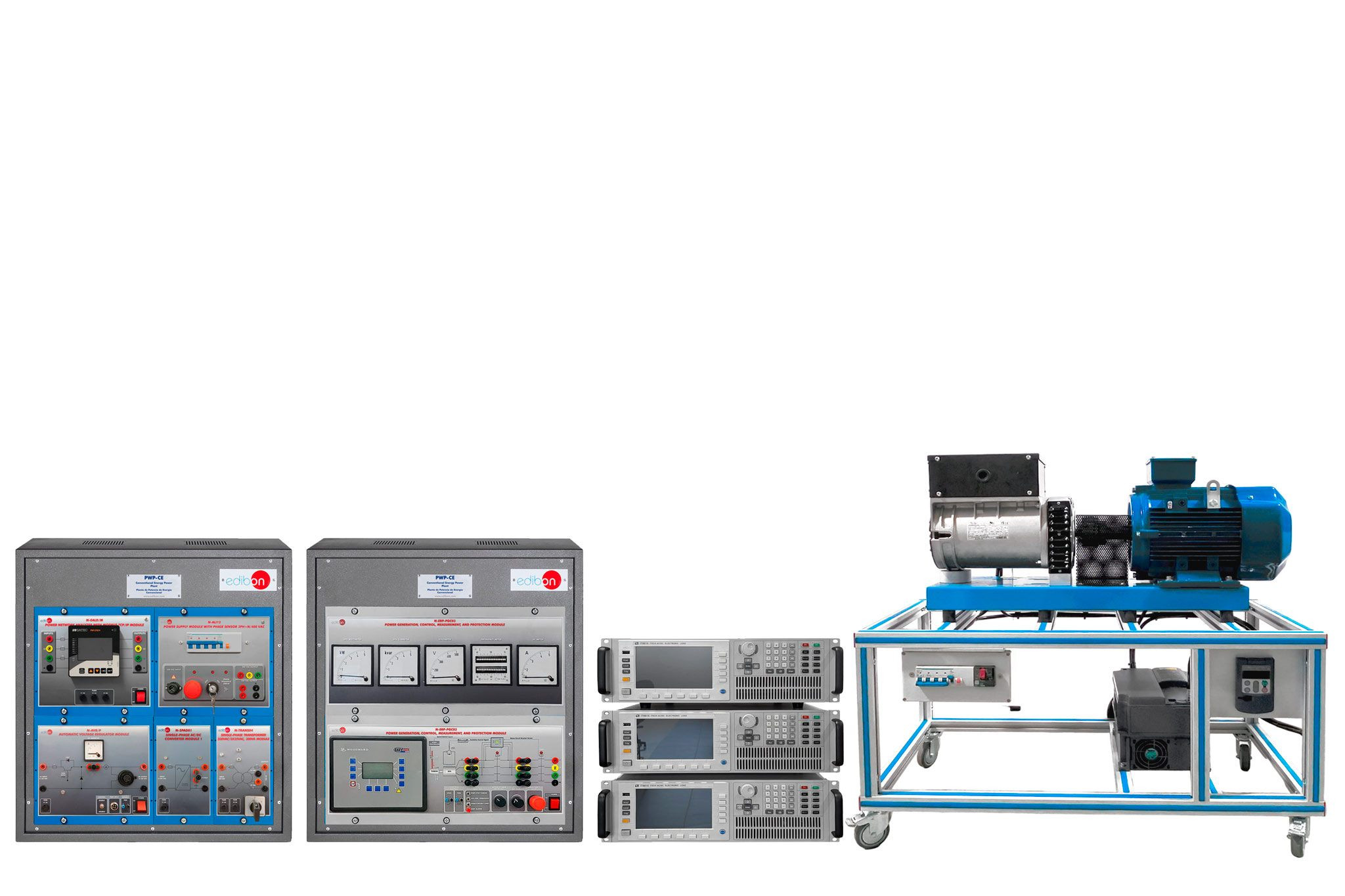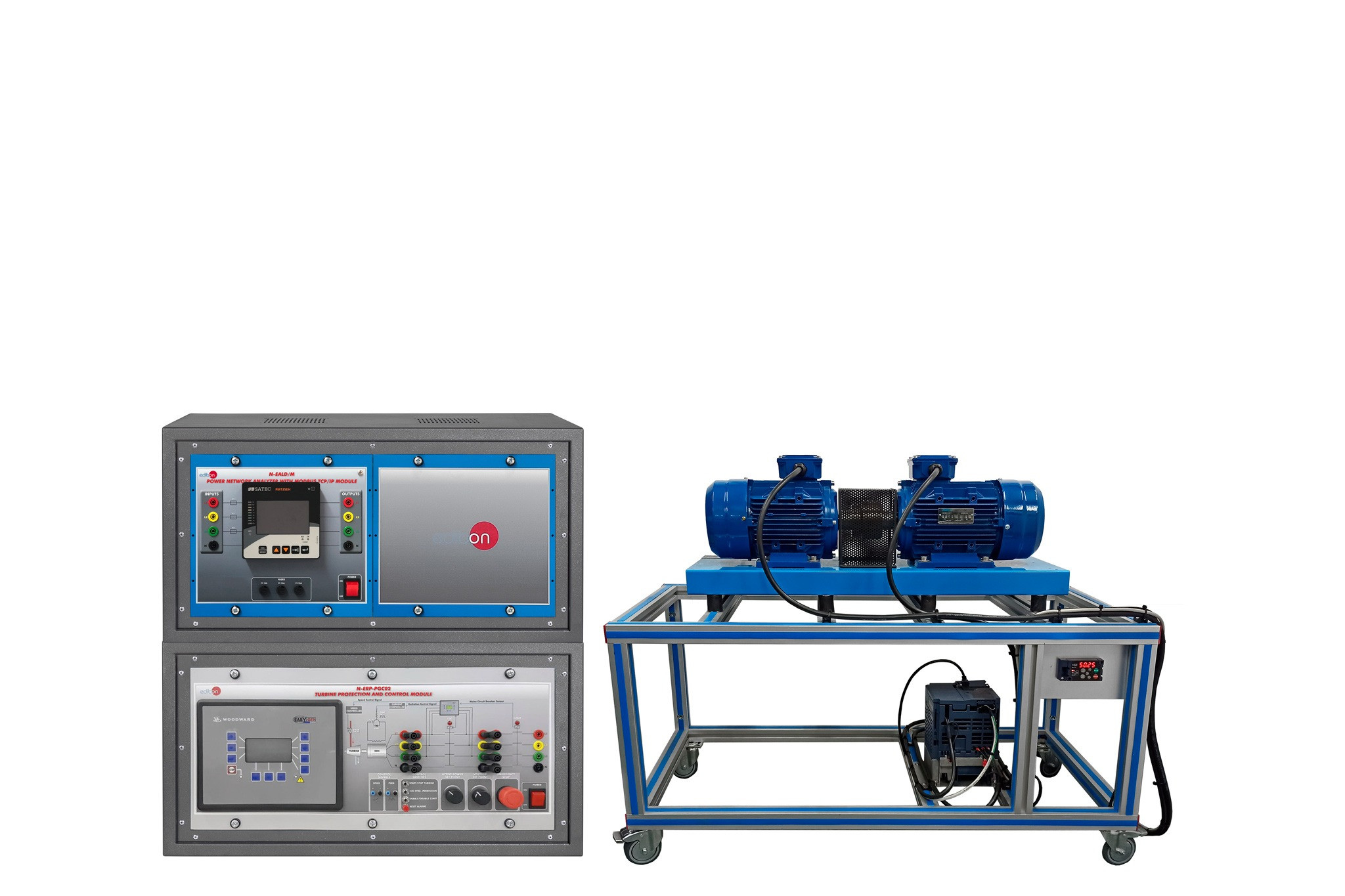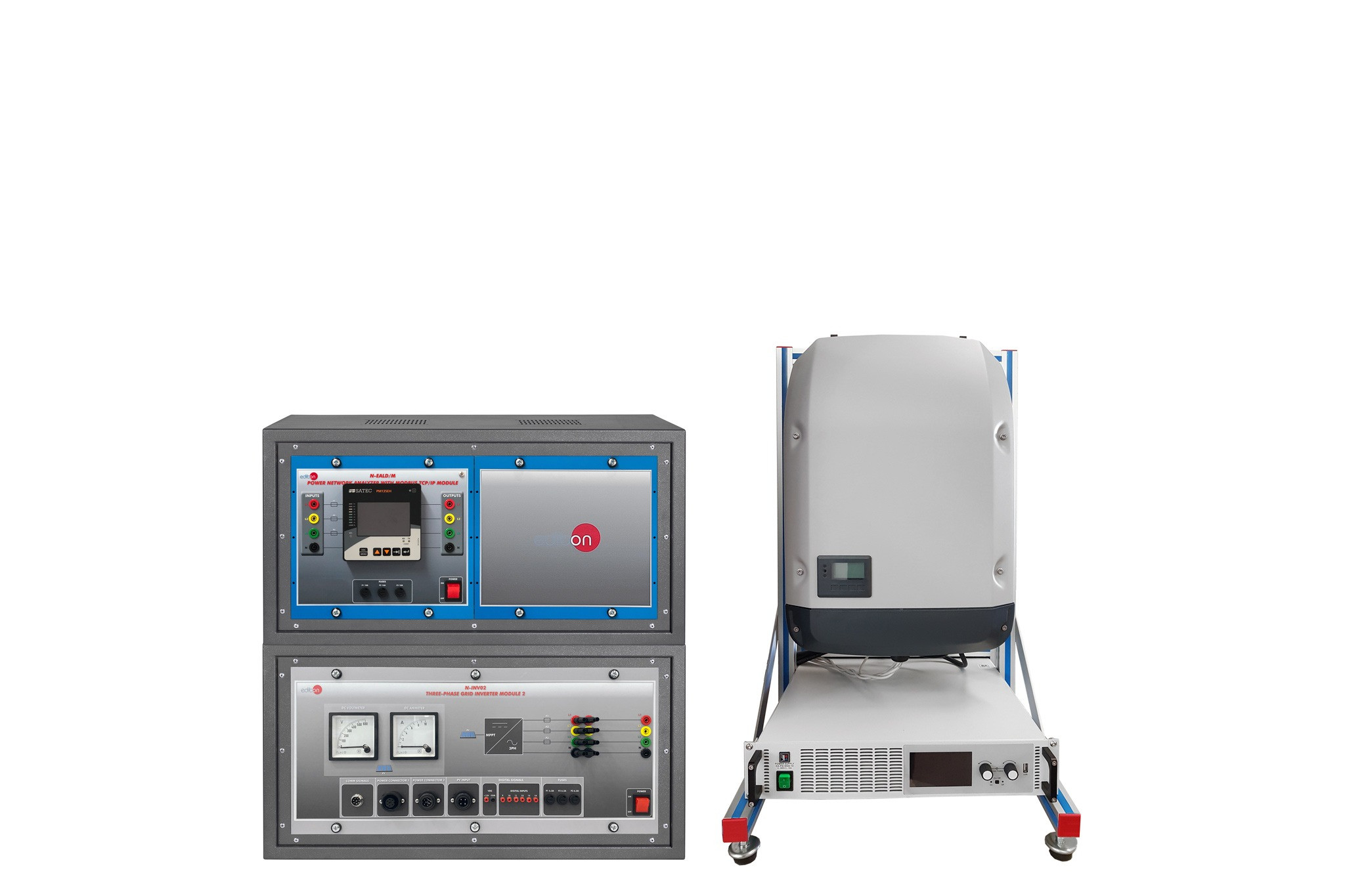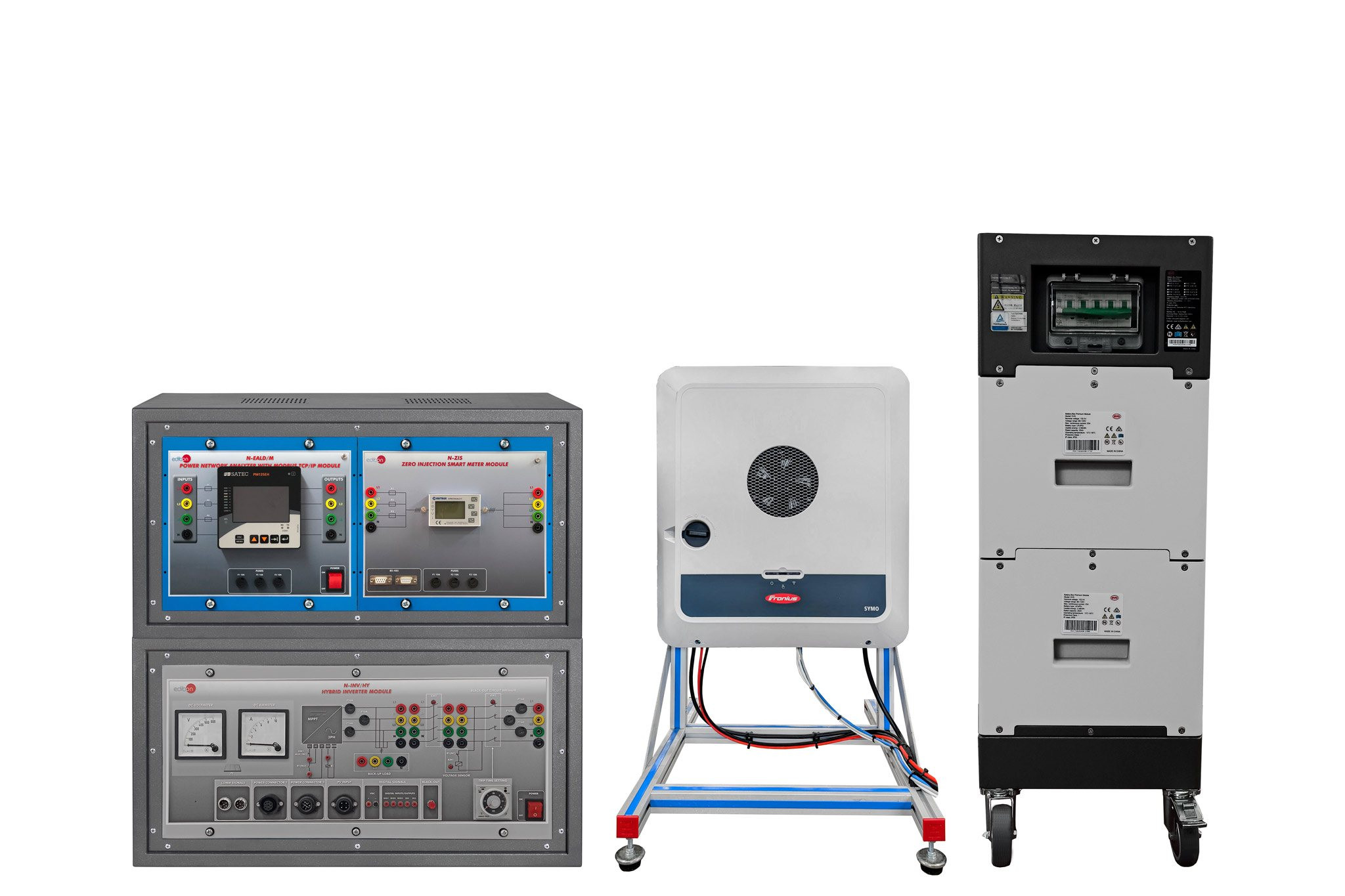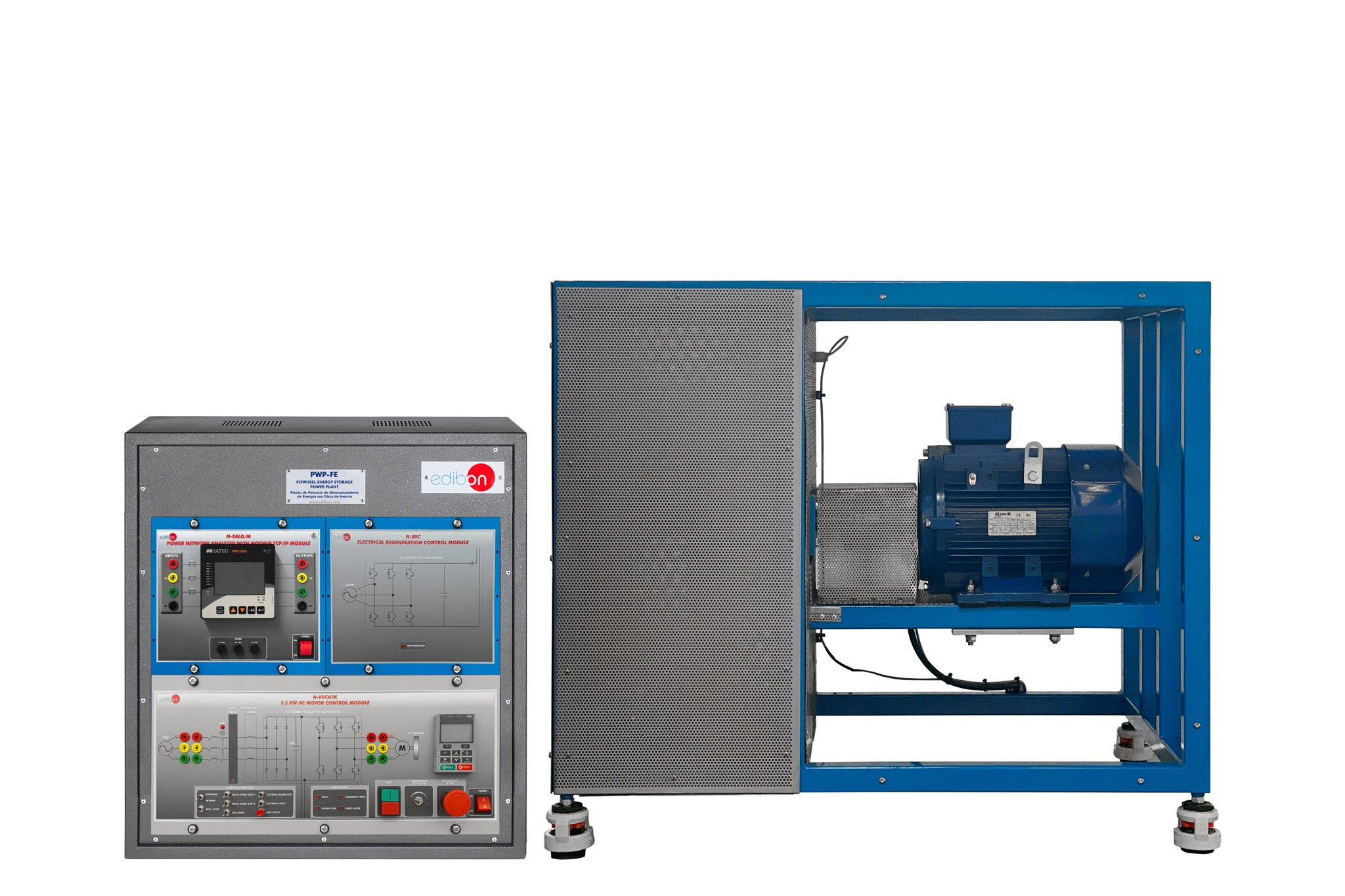At EDIBON, we firmly believe that high-quality technical training is key to addressing the energy challenges of today and tomorrow. That is why we are proud to announce the installation of several of our equipment at the Advanced Power Grid Laboratory at Alfred University, a significant step in strengthening education and research in renewable energy.
We had the honor of installing our AEL-MGP (Microgrid Power Systems), specifically designed to provide a complete educational experience—both theoretical and practical—on the operation of microgrid systems.
Microgrids are playing an increasingly important role in today’s global energy landscape, as they enable greater energy autonomy, more efficient resource management, and optimal integration of renewable sources. Therefore, having advanced training equipment that simulate these systems is essential for preparing the professionals of tomorrow.
The installation was complemented by our PWP-CE (Conventional Energy Power Plant) which serves as the foundation, ensuring frequency and voltage stability. Additional modules simulate the primary technologies used in microgrids:
- PWP-WE (Wind Generation): Enables the analysis of wind power generation, variability, and integration into the system.
- PWP-HE (Hydroelectric Generation): Simulates a hydro plant to study its regulatory capabilities.
- PWP-PE (Photovoltaic Generation): Reproduces the behavior of a solar plant, focusing on irradiance and inverter performance.
- PWP-BE (Battery Energy Storage): Demonstrates how energy can be stored to offset the variability of renewables.
- PWP-FE (Flywheel Energy Storage): Offers insights into kinetic energy storage as a method for grid stabilization.
These components enable the design of hybrid configurations, integration of diverse storage technologies, and in-depth analysis of a microgrid’s dynamic behavior.
Technology Supporting a Sustainable Energy Transition
Since our beginnings, EDIBON has been committed to the development of educational technologies that facilitate practical, realistic, and challenge-oriented learning. This new project at Alfred University not only strengthens our international presence, but also demonstrates our readiness to train the new generations of engineers who will lead the energy transition.
We continue moving forward with determination to promote technological innovation and specialized technical education around the world.
Would you like to learn more about this project? You can read the full article published by Alfred University on their website.
